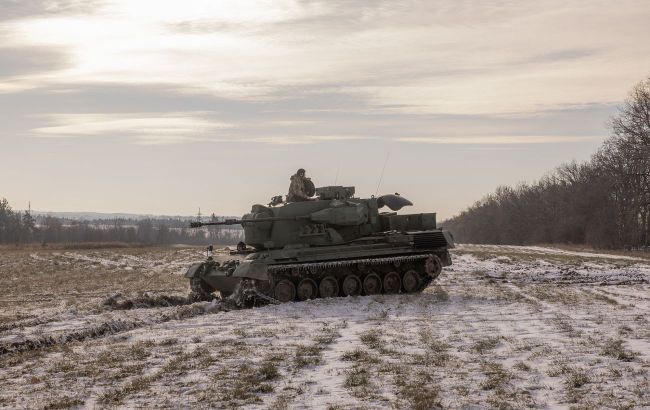Deterioration weather conditions to slow down pace of fighting along the entire front line
 Bad weather conditions will slow down the pace of fighting along the entire front line (photo: Getty Images)
Bad weather conditions will slow down the pace of fighting along the entire front line (photo: Getty Images)
The deterioration of weather conditions continues to slow down the pace of hostilities between the Armed Forces of Ukraine (ZSU) and the Russian army along the entire front line, but it has not stopped them completely, according to the ISW report.
Yes, according to the Ukrainian Armed Forces, despite the snow and wind, Russian forces are actively using aviation in the direction of Bakhmut. Additionally, the weather does not significantly impact the fire of Russian artillery. However, Russian sources note that strong winds near Bakhmut and in the Zaporizhzhia region have prevented Russian forces from using drones and artillery over the past two days.
Furthermore, the mud complicates the movement of infantry and wheeled vehicles. Russians complain that they can only move on scarce tracked vehicles, while Ukrainian Forces continue to subject them to intense artillery fire, despite the poor weather conditions.
Key findings by ISW:
-
On the night of December 1-2, Russian forces launched another series of strikes using Shahed 136/131 in southern Ukraine.
-
The U.S. Department of the Treasury's Office of Foreign Assets Control imposed sanctions on three third-party companies engaged in transporting Russian crude oil above the G7 price limit.
-
The Kremlin's policy regarding the role of migrants in strengthening Russia's industrial potential continues to be inconsistent.
-
Russian Forces have continued offensive actions along the Kupiansk-Svatove-Kremenna line, in the Bahmut area, around Avdiivka, and in the Zaporizhia region.
-
It is reported that Ukrainian partisans attacked Russian military personnel on December 1 in the temporarily occupied Melitopol, Zaporizhzhia region.

